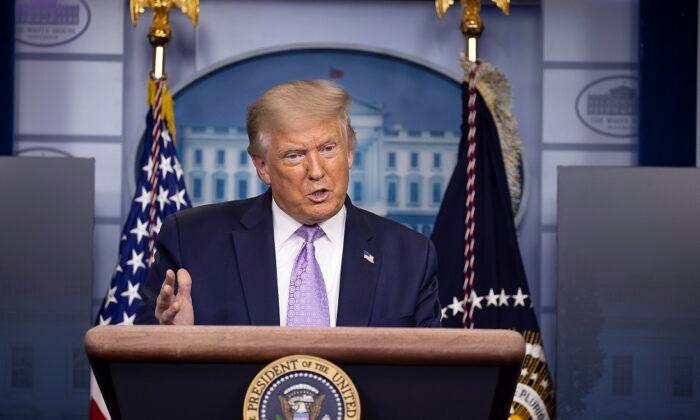The U.S. Chamber of Commerce and more than 30 trade associations have appealed to the administration and Congress to work together to find an alternative to President Donald Trump’s payroll tax deferral, arguing that unless it becomes a permanent cut, the executive action “threatens to impose serious hardships on employees who will face a large tax bill” down the road.
Trump, in announcing the payroll tax deferral, said he would seek to make it permanent if he wins reelection. Turning a deferral into a cut would need a nod from Congress, however, which is uncertain if Democrats hold the House in November’s election.
“Under current law, the EO creates a substantial tax liability for employees at the end of the deferral period. Without congressional action to forgive this liability, it threatens to impose serious hardships on employees who will face a large tax bill as a result of deferral,” the coalition argued, suggesting that workers would feel the pain of a lump-sum tax liability next year more acutely than they would experience the benefit of receiving slightly fatter paychecks in the short-term.
Someone earning $50,000 a year would see an increase of $119.23 per bi-weekly pay period, a simulation in the letter showed. But that individual would in 2021 have to pay $1,073.08 in payroll taxes, which for someone less mindful may come as an unpleasant surprise.
The business coalition also argued that implementing the deferral would be problematic.
“Many of our members consider it unfair to employees to make a decision that would force a big tax bill on them next year. It would also be unworkable to implement a system where employees make this decision,” the coalition wrote, adding that many businesses would simply choose to ignore the order and continue collecting the payroll tax on employees’ behalf.
Trump issued the executive order after talks on a fifth COVID-19 relief package ended in deadlock. Most Senate Republicans and Trump support a $1 trillion aid bill consisting solely of CCP virus relief aid, while Democrats want the relief aid plus an additional $2 trillion for nonrelief measures such as $1 trillion to bail out high-tax blue states that the president argues have been mismanaged for years.
The tax deferral applies to annual incomes of $104,000 or less.





